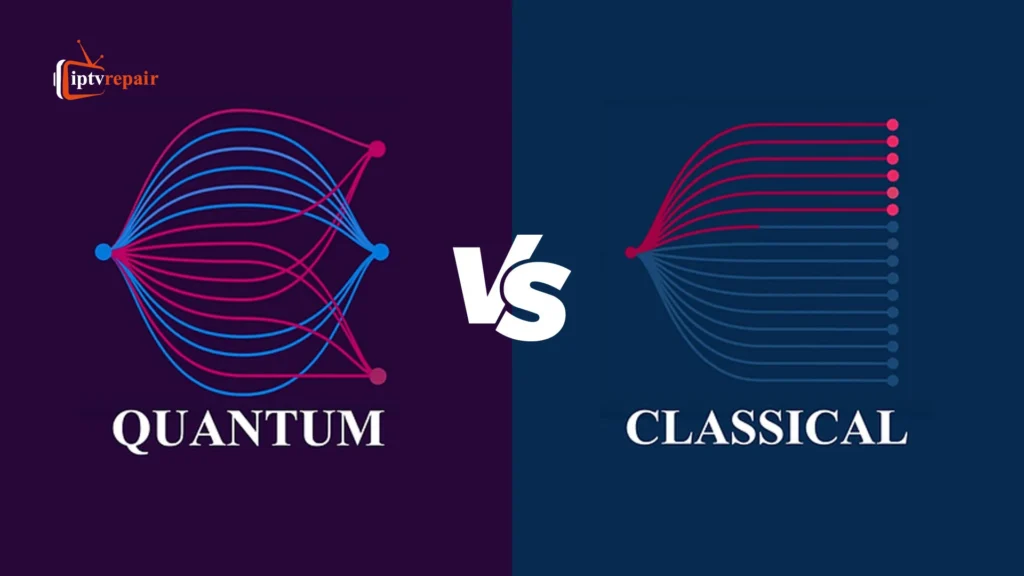Quantum Computing
In the realm of technology, a groundbreaking revolution is unfolding—the advent of quantum computing. This next-technology computing paradigm harnesses the power of quantum mechanics to clear up complicated problems that have been as soon as deemed impossible for classical computer systems. As we stand on the precipice of this technological leap, let’s delve into the sector of quantum computing, explore its capacity applications, and resolve the mysteries that lay ahead.
Understanding Quantum Computing
Quantum computing operates at the standards of quantum mechanics, utilizing quantum bits or qubits. Unlike classical bits (which can be both 0 or 1), qubits can exist in more than one state simultaneously, referred to as superposition. Additionally, they can be entangled, which means the country of 1 qubit is intrinsically tied to some other. These homes permit quantum computer systems to carry out parallel computations and remedy troubles exponentially quicker than classical opposite numbers. This quantum benefit holds high-quality promise across various fields, from cryptography and drug discovery to optimization and weather modeling.
Quantum vs. Classical: Unleashing Unprecedented Power
Comparing quantum and classical computing highlights the profound difference in computational capacity. What might take classical computers hundreds of years to clear up, quantum computer systems ought to potentially crack in minutes or seconds.

This tremendous speedup ought to revolutionize industries reliant on facts-extensive computations, like finance and artificial intelligence. While quantum computing remains in its infancy, tech giants, research establishments, and governments are investing heavily to unencumbered its complete capacity and deal with the technical demanding situations related to building and working quantum computer systems.
Real-World Applications: Transforming Industries
Quantum computing’s disruptive capability spans diverse domains. In cryptography, quantum-resistant algorithms are being developed to create stable records against quantum attacks. Optimization problems, which include delivery chain management and direction-making plans, can be solved with unheard-of efficiency. Drug discovery, molecular modeling, and substance technological know-how benefit from simulating complex quantum systems. Furthermore, quantum systems getting to know to hold promise in revolutionizing AI algorithms. As those applications advance, quantum computing’s transformative impact on industries will become increasingly apparent.
Challenges and Roadblocks
While quantum computing indicates substantial promise, several hurdles lie beforehand. Quantum structures are incredibly touchy to noise and require advanced error-correction strategies to preserve stability. Scaling quantum computers to a realistic length even as minimizing decoherence remains a substantial assignment. Furthermore, getting admission to quantum hardware is constrained, hindering massive adoption. Overcoming these barriers needs interdisciplinary collaboration, research, and innovation. As the technology matures, these boundaries will probably be surmounted, unlocking quantum computing’s complete capability.
You May Also Like: Bionic Implants Merging Human and Machine
The Ascent of Quantum Computing: A Glimpse
Quantum computing makes simultaneous leaps in mechanical paradigms, harnessing the inscrutable principles of quantum mechanics to inspire solutions to intricate problems, impenetrable mysteries made more pronounced by mysterious qubits the practice of superposition, existing simultaneously in multiple contexts Writing from quick-medicine -Can transform industries from discovery to confusing consumption puzzles and production efficiency to limits enforced by artificial intelligence.

Although the ontogeny of quantum computing is still in its infancy, its seer effect reverberates in the esoteric scientific community as quantum control becomes a viable tool, the future portends pervasive change, progress, and innovation avant-garde, thereby reorganizing the very fabric of man’s life Persuasively, we must conscientiously embrace ethical considerations and stimulate concerted efforts to integrate these hidden technologies into social affairs in the responsibility. This mercurial-level quantum computer embarks on an incredible quest to uncover the secrets of the universe and reveal a future filled with infinite possibilities
The Future of Quantum Computing
The future of quantum computing holds unparalleled possibilities. If realized correctly, quantum computers could revolutionize drug discovery, climate models, artificial intelligence, and more.

Enabled by entanglement, the Quantum Internet can redefine the security of communications. As quantum computing merges with other technologies, its transformative effects will be pervasive, affecting every aspect of our lives and reshaping the technological landscape.
Conclusion
The rise of quantum computing is an incredible journey into the unknown, opening doors to unparalleled computing power. As we explore its potential applications, we must meet the challenges ahead and work together to create a quantum future that benefits humanity around the world.
Read IPTV Blog Post
